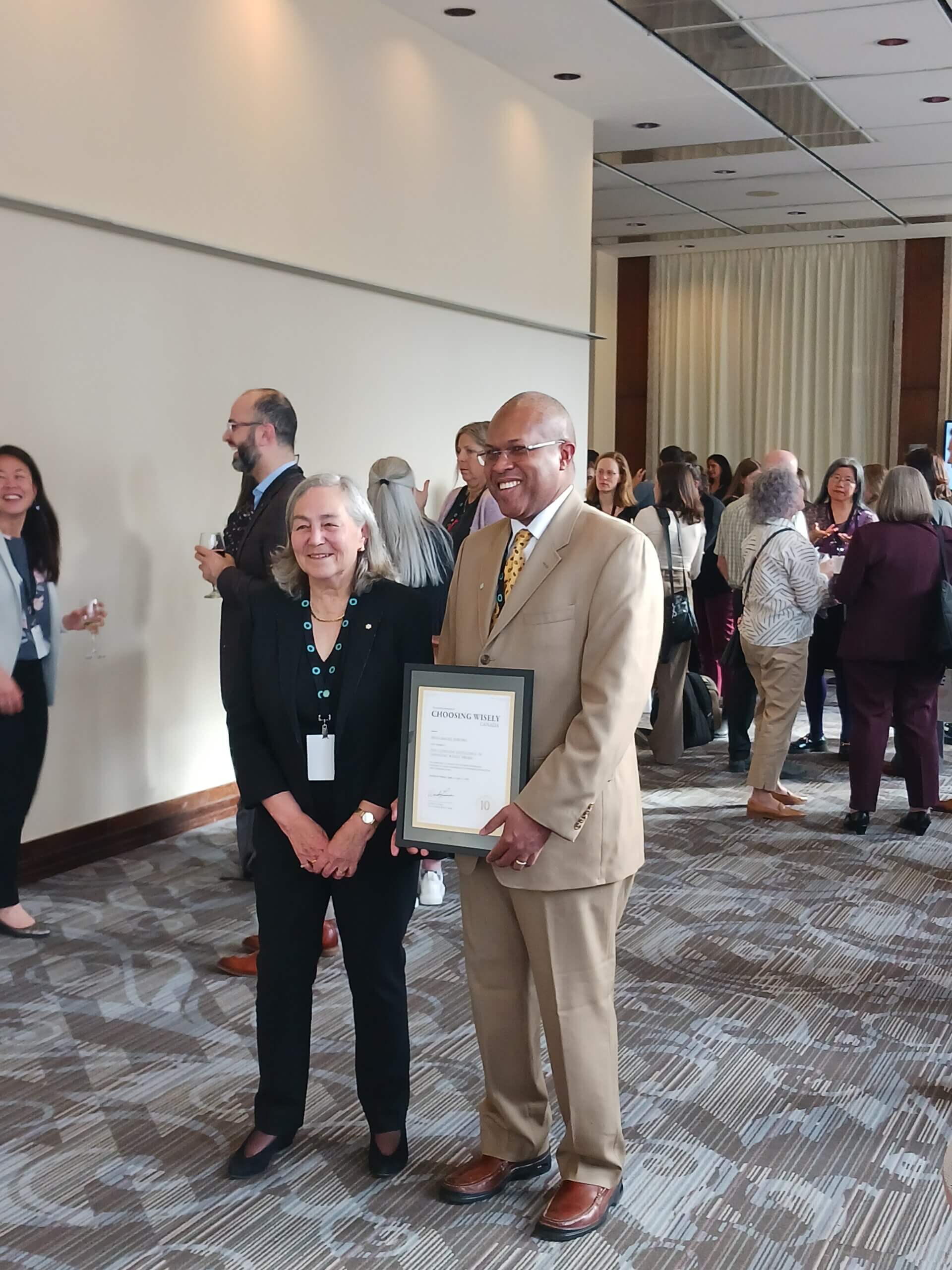
Choosing Wisely Manitoba is proud to announce, Dr. AbdulRazaq Sokoro, PhD, FCACB, FADLM. Chief Operating Officer, Provincial Diagnostic Services, Shared Health, was awarded the Clinical Excellence in Choosing Wisely Award at the national Choosing Wisely Conference held in Montreal on April 15, 2024. This award, recognizes a clinician (physician, nursing, pharmacist, allied health) who has exhibited exceptional leadership and commitment to resource stewardship within their clinical practice, with a dedication to reducing unnecessary tests and treatments while enhancing patient care.
Dr. Sokoro has contributed to Manitoba’s health system for 14 years serving in a variety of roles including Shared Health’s Executive Director of Provincial Laboratory Operations, and Associate Head of the Department of Pathology at the University of Manitoba’s Max Rady College of Medicine
As noted in his nomination, Dr. Sokoro has supported a large number of initiatives in Manitoba, which have resulted in the following changes and improvements:
- Streamlined and sustainably reduced Vitamin D testing in Manitoba by 90%
- Embedded Choosing Wisely/ Resource Stewardship into curriculum with International Medical Graduate students and Post Graduate Medical Student Education
- Championed the development and implementation of Manitoba Endocrine Guidelines including guidance on screening and adding reflex testing for Free T3 and T4
- Introduced Provincial guidelines to reduce FOB testing of inpatients by 74%
- Supported provincial guidelines for hospital labs to require a positive urinalysis prior to a urine culture, to encourage appropriate testing.
Dr. Sokoro holds a BSc (Hons) in Biochemistry and Zoology from Egerton University in Njoro, Kenya as well as a PhD in Toxicology from the University of Saskatchewan and a post-doctoral residency in Clinical Biochemistry from the Max Rady College of Medicine at the University of Manitoba. He is a fellow of the Canadian Academy of Clinical Biochemistry, Canada and the Association for Diagnostics and Laboratory Medicine in the United States.
His recent professional accomplishments beyond Choosing Wisely range from the standardization of quality oversight of point of care testing in a partnership with First Nations & Inuit Health Branch, development of a red blood cell utilization/transfusion strategy that brought Manitoba in line with the rest of Canada, to ongoing efforts to train, recruit and retain laboratory staff. Dr. Sokoro’s collaborative approach and passionate advocacy for communities, partner organizations and staff are valued assets as part of any team he is part of.
Congratulations Dr. Sokoro, your efforts and perseverance have assisted Manitoba’s current and future health providers to choose more wisely.





